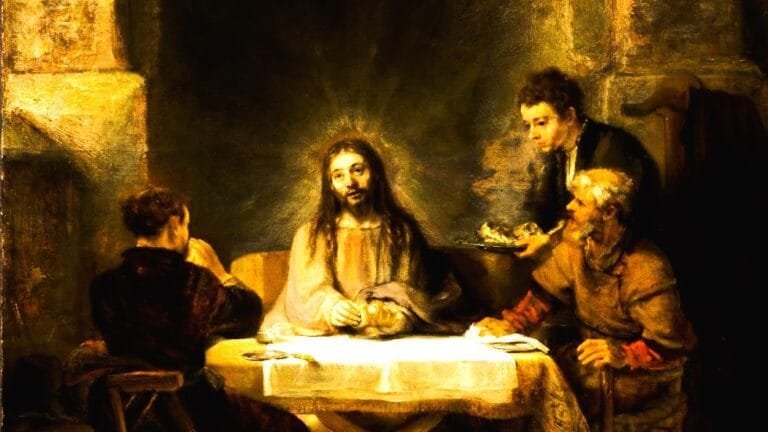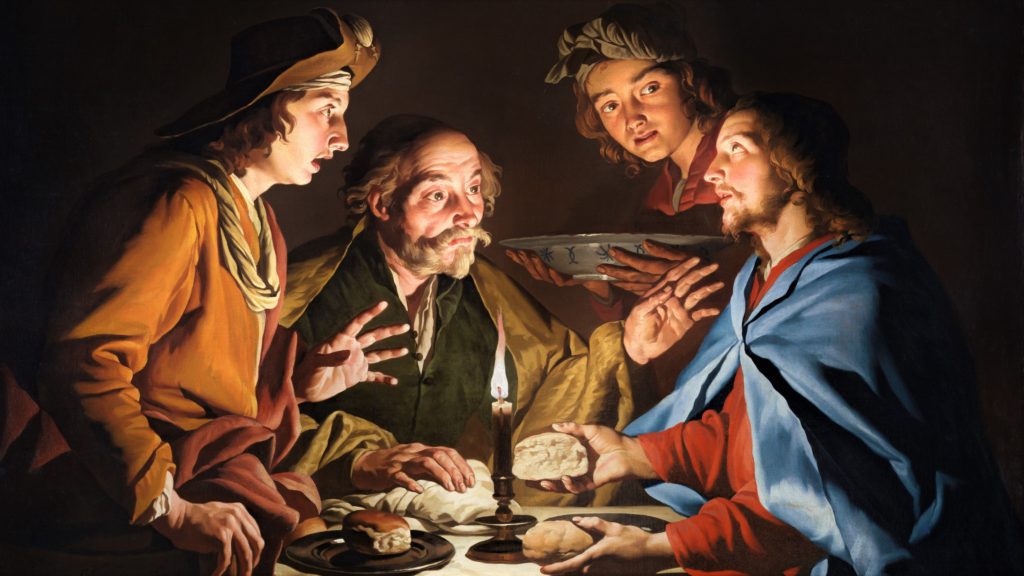POPE BENEDICT XVI ON THE THIRD SUNDAY OF EASTER YEAR A.
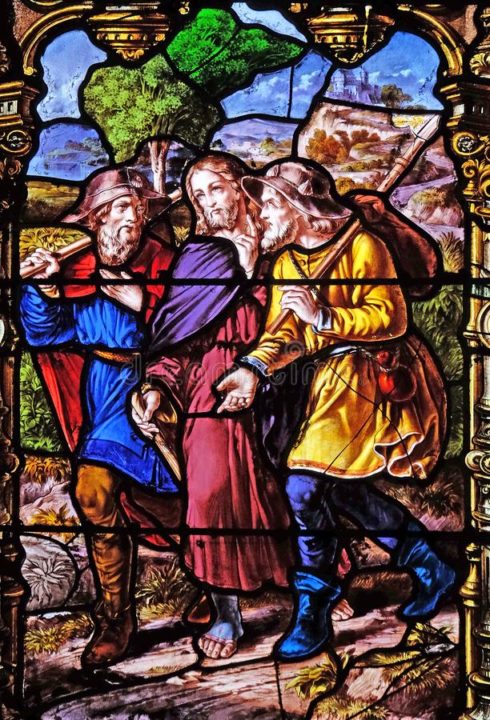
PASTORAL VISIT TO AQUILEIA AND VENICE
EUCHARISTIC CELEBRATION
HOMILY OF HIS HOLINESS BENEDICT XVI
San Giuliano Park – Mestre
Third Sunday of Easter Year A, 8 May 2011
Dear Brothers and Sisters,
[…]
The Gospel of the Third Sunday of Easter — which we have just heard — presents the episode of the disciples of Emmaus (cf. Lk 24:13-35), an account that never ceases to astonish and move us. This episode shows the effects that the Risen Jesus works in two disciples: conversion from despair to hope; conversion from sorrow to joy; and also conversion to community life. Sometimes, when we speak of conversion we think solely of its demanding aspect of detachment and renunciation. Christian conversion, on the contrary, is also and above all about joy, hope and love. It is always the work of the Risen Christ, the Lord of life who has obtained this grace for us through his Passion and communicates it to us by virtue of his Resurrection.
Dear brothers and sisters, I have come among you as Bishop of Rome and perpetuator of Peter’s ministry, to strengthen you in faithfulness to the Gospel and in communion. I have come to share with the bishops and priests their concern for missionary proclamation, which must involve us all in a serious and well-coordinated service to the cause of the Kingdom of God. You, who are present here today, represent the ecclesial communities that were born from the mother Church of Aquileia. Just as in the past when those Churches were distinguished for their apostolic fervour and their pastoral dynamism, so today too it is necessary to promote and courageously defend the truth and unity of the faith. It is necessary to account for Christian hope to modern men and women who are often overcome by immense and troubling problems that plunge the very foundations of their being and action into crisis.
You are living in a context in which Christianity is presented as the faith which has accompanied the journey of many peoples down the ages even through persecutions and harsh trials. The many testimonies that have spread everywhere are an eloquent expression of this faith: churches, works of art, hospitals, libraries and schools; the actual environment of your cities, of the countryside and the mountains, is everywhere spangled with references to Christ. Yet today this existence of Christ risks being emptied of its truth and of its deepest content; it risks becoming a horizon that only superficially — and rather, in its social and cultural aspects — embraces life; it risks being reduced to a Christianity in which the experience of faith in the Crucified and Risen Jesus fails to illuminate the journey of life, as we have heard in today’s Gospel concerning the two disciples of Emmaus, who after the crucifixion of Jesus were going home immersed in doubt, sadness and disappointment. Unfortunately such an attitude is beginning to spread in your region too. This happens when today’s disciples drift away from the Jerusalem of the Crucified and Risen One, no longer believing in the power and in the living presence of the Lord. The problem of evil, sorrow and suffering, the problem of injustice and abuse, fear of others, of strangers and foreigners who come to our lands and seem to attack what we are, prompt Christians today to say sadly: we hoped that the Lord would deliver us from evil, from sorrow, from suffering, from fear, from injustice.
It is thus necessary for each and every one of us to let ourselves be taught by Jesus, as the two disciples of Emmaus were: first of all by listening to and loving the word of God read in the light of the Paschal Mystery, so that it may warm our hearts and illumine our minds helping us to interpret the events of life and give them meaning. Then it is necessary to sit at table with the Lord, to share the banquet with him, so that his humble presence in the Sacrament of his Body and Blood may restore to us the gaze of faith, in order to see everything and everyone with God’s eyes, in the light of his love. Staying with Jesus who has stayed with us, assimilating his lifestyle, choosing with him the logic of communion with each other, of solidarity and of sharing. The Eucharist is the maximum expression of the gift which Jesus makes of himself and is a constant invitation to live our lives in the Eucharistic logic, as a gift to God and to others.
The Gospel also mentions that after recognizing Jesus in the breaking of the bread, the two disciples “rose that same hour and returned to Jerusalem” (Lk 24:33). They felt the need to return to Jerusalem and to tell of their extraordinary experience: the encounter with the Risen Lord. A great effort must be made so that every Christian, here in the North East [of Italy] as in every other part of the world, may be transformed into a witness, ready to proclaim vigorously and joyfully the event of Christ’s death and Resurrection. I know the care which, as the Triveneto Churches, you devote to seeking to understand the reasons of the modern man’s heart and that, referring to the ancient Christian traditions, you are concerned to outline a programme for the new evangelization, looking attentively at the numerous challenges of the present time and rethinking the future of this region. With my presence I would like to support your work and to imbue everyone with trust in the full pastoral programme initiated by your pastors, hoping for a fruitful commitment on the part of all members of the ecclesial community.
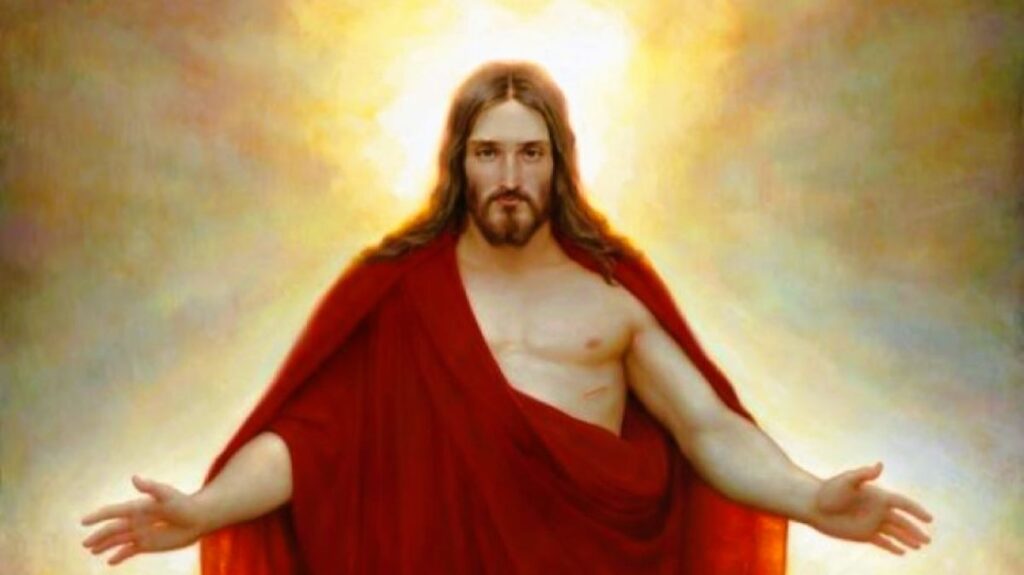
Even a traditionally Catholic people can feel negatively or assimilate almost unconsciously the repercussions of a culture that ends by insinuating a mentality in which the Gospel message is openly rejected or subtly hindered. I know that you have made and are making a considerable effort to defend the eternal values of the Christian faith. I encourage you never to give in to the recurring temptations of the hedonistic culture and to the appeal of materialistic consumerism. Accept the invitation of the Apostle Peter, contained in today’s Second Reading, to conduct yourselves “with fear throughout the time of your exile” here below (1 Pt 1:17); an invitation that is put into practice by living intensely on the thoroughfares of our world in the awareness of the destination to be reached: unity with God, in the Crucified and Risen Christ.
In fact, our faith and our hope are addressed to God (cf. 1 Pt 1:21): they are addressed to God because they are rooted in him, founded on his love and on his fidelity. In past centuries, your Churches knew a rich tradition of holiness and of generous service to the brethren, thanks to the work of zealous priests and men and women religious of both active and contemplative life. If we wish to listen to their spiritual teaching it is not difficult for us to recognize the personal and unmistakable appeal that they address to us: Be holy! Make Christ the centre of your lives! Build the edifice of your existence on him! In Jesus you will find the strength to open yourselves to others and to make yourselves, after his example, a gift for the whole of humanity.
Around Aquileia people of different languages and cultures were to be found united. They were brought together not only by political needs but especially by faith in Christ and by the civilization of Love, inspired by the teaching of the Gospel. Today the Churches founded by Aquileia are called to strengthen that ancient spiritual unity, in particular in the light of the phenomenon of immigration and the new geographical and political circumstances that are coming into existence. The Christian faith can certainly contribute to the practicality of such a programme, which concerns the harmonious and integral development of the human being and of the society in which he or she lives. My presence among you is therefore intended to be a strong support in the efforts made to foster solidarity among your North-Eastern dioceses. Further, it is intended to encourage every project, striving to overcome those divisions which might thwart concrete aspirations to justice and peace.
This, brothers and sisters, is my hope, this is the prayer that I raise to God for all of you, as I invoke the heavenly intercession of the Virgin Mary and of the many Saints and Blesseds among whom I would like to recall St Pius X and Bl. John XXIII and also Venerable Giuseppe Toniolo, whose Beatification is now at hand. These luminous Gospel witnesses are the greatest treasure of your region; follow their example and their teaching, combining it with the needs of the present day. Be confident: the Risen Lord is walking with you, yesterday, today and for ever. Amen.
© Copyright 2011 – Libreria Editrice Vaticana
Copyright © Dicastero per la Comunicazione – Libreria Editrice Vaticana
REGINA CÆLI
St Peter’s Square
Third Sunday of Easter, 6 April 2008
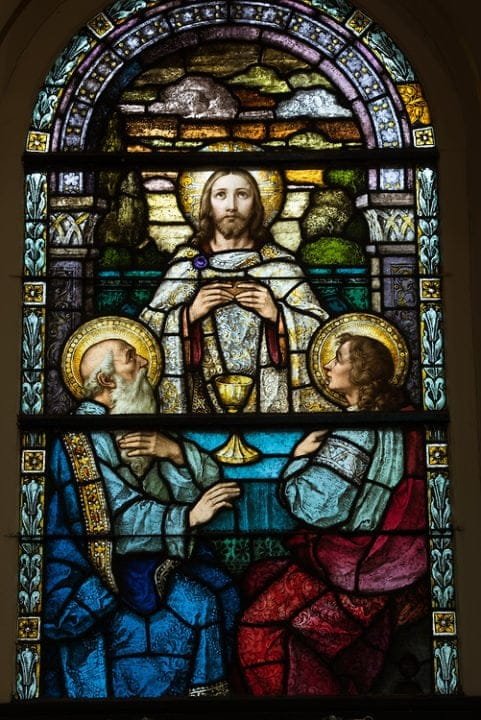
Dear Brothers and Sisters,
The Gospel of this Sunday – the Third of Easter – is the famous account of the disciples of Emmaus (cf. Lk 24: 13-35). It tells the tale of two followers of Christ who, on the day after the Sabbath or the third day after his death, were leaving Jerusalem sad and dejected, bound for a village that was not far off called, precisely, Emmaus. They were joined on their way by the Risen Jesus but did not recognize him. Realizing that they were downhearted, he explained, drawing on the Scriptures, that the Messiah had to suffer and die in order to enter into his glory. Then entering the house with them, he sat down to eat, blessed the bread and broke it; and at that instant they recognized him but he vanished from their sight, leaving them marvelling before that broken bread, a new sign of his presence. And they both immediately headed back to Jerusalem to tell the other disciples of the event.
The locality of Emmaus has not been identified with certainty. There are various hypotheses and this one is not without an evocativeness of its own for it allows us to think that Emmaus actually represents every place: the road that leads there is the road every Christian, every person, takes. The Risen Jesus makes himself our travelling companion as we go on our way, to rekindle the warmth of faith and hope in our hearts and to break the bread of eternal life. In the disciples’ conversation with the unknown wayfarer the words the evangelist Luke puts in the mouth of one of them are striking: “We had hoped...” (Lk 24: 21). This verb in the past tense tells all: we believed, we followed, we hoped…, but now everything is over. Even Jesus of Nazareth, who had shown himself in his words and actions to be a powerful prophet, has failed, and we are left disappointed. This drama of the disciples of Emmaus appears like a reflection of the situation of many Christians of our time: it seems that the hope of faith has failed. Faith itself enters a crisis because of negative experiences that make us feel abandoned and betrayed even by the Lord. But this road to Emmaus on which we walk can become the way of a purification and maturation of our belief in God. Also today we can enter into dialogue with Jesus, listening to his Word. Today too he breaks bread for us and gives himself as our Bread. And so the meeting with the Risen Christ that is possible even today gives us a deeper and more authentic faith tempered, so to speak, by the fire of the Paschal Event; a faith that is robust because it is nourished not by human ideas but by the Word of God and by his Real Presence in the Eucharist.
This marvellous Gospel text already contains the structure of Holy Mass: in the first part, listening to the Word through the Sacred Scriptures; in the second part, the Eucharistic liturgy and communion with Christ present in the Sacrament of his Body and his Blood. In nourishing herself at this two-fold table, the Church is constantly built up and renewed from day to day in faith, hope and charity. Through the intercession of Mary Most Holy, let us pray that in reliving the experience of the disciples of Emmaus every Christian and every community may rediscover the grace of the transforming encounter with the Risen Lord.
Source: https://www.vatican.va/content/benedict-xvi/en/angelus/2008/documents/hf_ben-xvi_reg_20080406.html
Stay updated: subscribe by email for free TO OUR NEW WEBSITE www.catholicsstrivingforholiness.org (PUT YOUR EMAIL IN THE SUBSCRIBE WIDGET).
We are also in www.fb.com/Catholicsstrivingforholiness. Kindly help more people in their Christian life by liking our page and inviting your family, friends and relatives to do so as well. Thanks in advance and God bless you and your loved ones! Fr. Rolly Arjonillo
